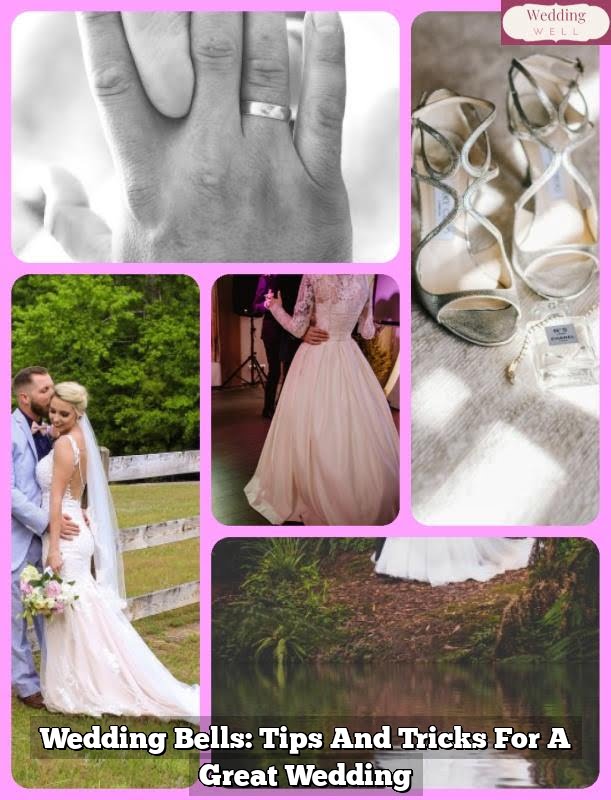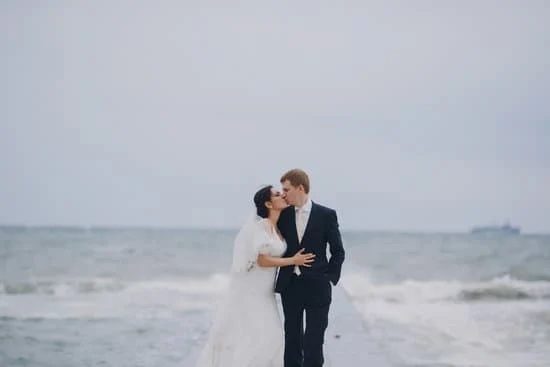Planning a wedding requires careful consideration of many details, and one crucial aspect is calculating how much alcohol to buy. Determining the right amount of alcoholic beverages plays a significant role in ensuring that guests have an enjoyable and memorable experience. This article provides valuable insights into the factors to consider when planning for the right quantity of alcohol at a wedding, from estimating the number of guests to budgeting and selecting the right types of beverages.
When it comes to planning a wedding, one common question that arises is “how much alcohol to buy for a wedding?” It’s essential to strike the perfect balance between having enough drinks for everyone while also staying within budget constraints. Planning for this beverage portion of your wedding will involve considering several key factors, including the number of guests, their drinking habits, and any specific preferences they may have.
By carefully considering these factors and implementing thoughtful strategies, you can ensure that your wedding reception has just the right amount and variety of alcohol to please all your guests. In addition to discussing these considerations, this article offers practical tips for choosing the right types of alcohol, budgeting for purchases, selecting vendors or retailers, accommodating special requests or dietary restrictions, and finalizing the alcohol order as the big day approaches.
With careful planning and attention to detail, you can successfully calculate how much alcohol to buy for your wedding.
Calculating the Number of Guests
When planning for a wedding, one of the essential aspects to consider is how much alcohol to buy. This depends greatly on the number of guests attending the event. Calculating the number of guests and estimating how much each person will consume is crucial in ensuring that there is enough alcohol for everyone to enjoy, without going overboard.
The first step in calculating how much alcohol to buy for a wedding is estimating the number of drinks per guest. A general rule of thumb is to plan for each guest to have about two drinks in the first hour of the reception and one drink per hour for every following hour. However, it’s important to account for different types of drinkers.
For example, light drinkers may have only one or two drinks throughout the entire event, while moderate drinkers may have three or four drinks. Heavy drinkers are likely to have more than four drinks. By considering these categories, you can get a better idea of how much alcohol to purchase.
It’s also important to keep in mind that not all guests will drink alcohol, so it’s wise to provide non-alcoholic options as well. When estimating quantities, be sure to calculate enough non-alcoholic beverages alongside the alcoholic ones. With these considerations in mind, you can make a more accurate assessment of how much alcohol to buy for your wedding celebration.
Choosing the Right Types of Alcohol
When it comes to choosing the right types of alcohol for a wedding, there are several factors to consider in order to cater to the preferences of your guests. One of the most important aspects is offering a variety of options to accommodate different tastes and preferences. This section will discuss the variety of alcoholic beverages to consider for a wedding and provide recommendations for popular choices such as wine, beer, and liquor.
Consider the Variety
When determining how much alcohol to buy for a wedding, it’s crucial to offer a diverse selection of beverages. For wine enthusiasts, consider offering both red and white wine options, as well as a sparkling wine or champagne for toasts. Beer drinkers will appreciate having a selection of both light and dark beers available. When it comes to liquor, offering a few popular options like vodka, whiskey, rum, and tequila will ensure that there is something for everyone.
Popular Choices
Wine is often a favorite choice for weddings due to its versatility and wide appeal. When selecting wines for your event, consider including popular varieties such as Chardonnay, Merlot, and Cabernet Sauvignon. For beer selections, including crowd-pleasing options like lagers and IPAs will satisfy most beer drinkers. In terms of liquor, classic choices like vodka for mixed drinks and whiskey for neat pours are safe bets.
Accommodating Special Requests
It’s also important to take into account any specific requests from the couple or their guests. Some couples may have a particular brand or type of alcohol that holds special significance to them that they’d like to include at their wedding. Additionally, accommodating any dietary restrictions or preferences such as gluten-free beer or vegan wine is essential when choosing the right types of alcohol for a wedding.
By taking these considerations into account when choosing the types of alcohol for your wedding, you can ensure that you have an assortment that will satisfy all your guests’ preferences while staying within your budget constraints.
Budgeting for Alcohol
When planning a wedding, one of the most important aspects to consider is the budget for alcohol. Ensuring that there is enough alcohol to accommodate all guests while staying within budget can be a challenging task. However, with careful planning and consideration, it is possible to create a budget that accounts for the necessary amount of alcohol without overspending.
Creating a Budget
To begin budgeting for alcohol, it is essential to have a clear understanding of the total number of guests who will be attending the wedding. This will provide a starting point for calculating how much alcohol to buy. Once the guest count is determined, it is recommended to allocate a specific amount of money per guest for alcoholic beverages. This can help in creating an overall budget that ensures there is enough alcohol for everyone while controlling costs.
Cost-Saving Tips
In order to stay within budget when purchasing alcohol for a wedding, there are several cost-saving tips to consider. One option is to buy alcohol in bulk, which can often result in lower per-unit costs.
Another strategy is to explore different types and brands of alcoholic beverages that are more affordable without sacrificing quality. Additionally, opting for alternatives such as signature cocktails or limited varieties of wine and beer can help keep costs down while still providing variety for guests.
Considering Alternatives
When budgeting for alcohol at a wedding, it’s important to consider alternative options that may reduce costs without compromising the overall experience. For example, some couples may choose to offer a limited bar selection or serve only beer and wine instead of including liquor in their beverage options. By evaluating different approaches and considering creative solutions, it’s possible to plan an enjoyable experience for guests while being mindful of the budget constraints.
By carefully considering the guest count, exploring cost-saving strategies, and evaluating alternative options, couples can create a realistic and effective budget for purchasing alcohol for their wedding. This thoughtful approach allows them to provide an enjoyable experience for their guests while staying within their financial means.
Selecting a Vendor or Retailer
When it comes to selecting a vendor or retailer for your wedding alcohol, there are a few options to consider. Each option has its pros and cons, so it’s important to weigh them carefully before making a decision. Here are some tips for navigating this part of the alcohol-buying process:
- Liquor Store: Purchasing alcohol from a local liquor store is a convenient option. You can easily select the specific brands and quantities you need, and some stores may even offer discounts for bulk purchases. However, keep in mind that prices at liquor stores can be higher than wholesale retailers.
- Wholesale Retailer: Buying alcohol from a wholesale retailer can often result in significant cost savings, especially when buying in large quantities. These retailers typically have a wide selection of alcoholic beverages to choose from, and they may also offer delivery services. On the downside, you may not have as much flexibility with specific brands or selections.
- Catering Service: Some couples choose to work with their catering service to provide the alcohol for their wedding. This can streamline the planning process and ensure that all of your beverage needs are taken care of by one vendor. Just be sure to carefully review and negotiate the pricing and selection options with your catering service.
It’s important to consider your budget and priorities when deciding where to purchase your wedding alcohol. Whether you prioritize convenience, cost savings, or specific brand choices, there are options available for every couple’s needs. Don’t forget to compare prices, explore any potential discounts or package deals, and ensure that the vendor or retailer is reputable and reliable.
By carefully evaluating different sources for purchasing alcohol, you can make an informed decision that aligns with your wedding vision and budget. Remember that negotiating prices is always an option-many vendors are willing to work with couples to find solutions that meet both parties’ needs efficiently and effectively as possible.
Special Considerations for the Reception
Planning the right amount of alcohol for a wedding reception involves special considerations that can impact the overall quantity needed. Factors such as the length of the reception, number of guests, and specific drink requests all play a role in determining how much alcohol to buy. Here are some important tips to take into account when considering these special factors:
- Length of the reception: The duration of the wedding reception is a key factor in determining how much alcohol to purchase. A longer reception will naturally require more drinks per guest compared to a shorter event. Consider the timeline of your reception when estimating the total amount of alcohol needed.
- Bar tender needs: Depending on the size and format of your reception, you may need to hire a professional bartender to manage drink service. This not only impacts the overall cost but also affects the efficiency and flow of drink distribution at the event. Factor in whether or not you will need a bartender when planning your alcohol quantities.
- Dietary restrictions and specific requests: In addition to alcoholic beverages, it’s important to consider non-alcoholic options as well as any potential dietary restrictions among your guests. Offering a variety of non-alcoholic beverages alongside alcoholic choices ensures that all attendees feel included and accommodated for. Take note of any specific drink requests or dietary restrictions from guests when finalizing your alcohol order.
Carefully considering each of these special factors will ensure that you accurately calculate how much alcohol to buy for your wedding reception, providing an enjoyable experience for all attendees. Remember that each wedding is unique, so take into account your individual needs and preferences when making decisions about alcohol purchases for your special day.
Tips for Calculating Non-Alcoholic Beverages
When planning the beverages for a wedding, it’s essential to consider the non-alcoholic options as well. Many guests may not drink alcohol, so it’s crucial to provide a variety of non-alcoholic beverages to accommodate everyone. But how do you calculate how much non-alcoholic drinks to buy for a wedding?
The first step is to estimate the number of guests who will be attending the wedding. Once you have that number, you can use a general rule of thumb that each guest will consume about 1-2 drinks per hour. This can help you gauge the overall consumption of both alcoholic and non-alcoholic beverages.
In terms of selecting non-alcoholic beverages, it’s important to offer a variety of options to cater to different preferences. Popular choices include soda, fruit juices, flavored water, iced tea, and lemonade. When calculating how much to buy, consider having an even distribution of these options to ensure that there is something for everyone.
| Non-Alcoholic Beverages | Quantity |
|---|---|
| Soda | 3 cans per guest |
| Fruit Juices | 2 gallons per guest |
| Iced Tea and Lemonade | 1 gallon per guest |
Finalizing the Alcohol Order
When finalizing the alcohol order for a wedding, it’s crucial to double-check all the details to ensure that the quantity and variety of alcoholic beverages will meet the needs of your guests. One of the most important factors when finalizing the order is to review the number of guests attending the wedding and calculating how much alcohol to buy based on their expected consumption.
To ensure that you have enough alcohol for your wedding, it’s essential to consider the different types of drinkers among your guests. This includes light, moderate, and heavy drinkers. Offering a variety of options such as wine, beer, and liquor can accommodate different preferences and help in estimating how much alcohol to buy for a wedding.
Aside from considering the quantity and variety of alcoholic beverages for your wedding, creating a budget for alcohol purchases is also an important step when finalizing the alcohol order. You can save money by buying in bulk or opting for less expensive options without compromising on quality.
| Consideration | Recommendations |
|---|---|
| Number of Guests | Estimate drinks per guest based on different drinking habits (light, moderate, heavy) |
| Types of Alcohol | Provide a selection of wine, beer, and liquor to cater to various preferences |
| Budgeting | Create an alcohol budget and look for cost-saving options such as buying in bulk or choosing less expensive varieties |
Conclusion
In conclusion, determining how much alcohol to buy for a wedding is a crucial aspect of wedding planning that should not be overlooked. By carefully calculating the number of guests, choosing the right types of alcohol, budgeting effectively, and selecting the best vendor or retailer, couples can ensure that their wedding bar is well-stocked without overspending.
It is important to consider special considerations for the reception as well as non-alcoholic beverage options to accommodate all guests. Ultimately, careful planning and attention to detail will result in a well-executed wedding bar experience.
When estimating the amount of alcohol needed for a wedding, it is essential to consider factors such as the length of the reception, the types of drinkers in attendance, and any specific drink requests or dietary restrictions. By following a comprehensive checklist and monitoring the quantity of alcohol as the wedding date approaches, couples can make adjustments if necessary to ensure that they have enough drinks to go around.
Ultimately, there is no one-size-fits-all answer when it comes to how much alcohol to buy for a wedding. Each couple’s individual needs and preferences will vary, so it’s important to plan accordingly. By taking into account all the aforementioned factors and utilizing the tips provided in this article, couples can confidently plan out their wedding bar and ensure that their guests have an enjoyable and memorable experience.
Frequently Asked Questions
How Do You Calculate Drinks for a Wedding?
Calculating drinks for a wedding involves considering the number of guests, the duration of the event, their drinking preferences, and any alcohol-free options. It’s important to estimate the consumption per person and plan accordingly.
Is 100 Considered a Small Wedding?
A wedding with 100 guests can be considered a small wedding depending on the context. In comparison to larger weddings with hundreds of attendees, 100 guests could indeed be considered small and more intimate.
Is a Wedding of 100 Small?
Whether a wedding with 100 guests is considered small depends on personal perspective and cultural norms. Some may view it as small while others may see it as average-sized. Ultimately, the size of a wedding is subjective.

Welcome to my blog about home and family. This blog is a place where I will share my thoughts, ideas, and experiences related to these important topics. I am a stay-at-home mom with two young children. I hope you enjoy reading it! and may find some helpful tips and ideas that will make your home and family life even better!





